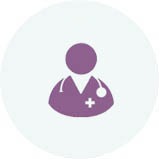Fetal medicine is a medical specialty that deals with the care and management of the developing fetus during pregnancy. The field has evolved with advancements in ultrasound technology and genetic testing, allowing doctors to diagnose and treat a wide range of fetal conditions before birth. Fetal medicine plays an important role in ensuring the health and well-being of the mother and baby, and it can improve outcomes for babies with congenital conditions. This article will provide an overview of fetal medicine, including procedures, benefits, and risks.
What is fetal medicine?
Fetal medicine is a sub-speciality of obstetrics and gynaecology that focuses on the diagnosis and treatment of fetal conditions during pregnancy. This field encompasses various medical procedures, including prenatal diagnosis, fetal therapy, and fetal surgery. Fetal medicine specialists use advanced diagnostic techniques, such as ultrasound and genetic testing, to identify and manage fetal conditions.
What are the different types of fetal medicine procedures?
There are several types of fetal medicine procedures, including:
- Fetal ultrasound: This is a non-invasive imaging technique that uses high-frequency sound waves to create images of the developing fetus.
- Chorionic villus sampling (CVS): This procedure involves taking a small sample of the placenta to test for genetic abnormalities.
- Amniocentesis: This procedure involves taking a small sample of amniotic fluid to test for genetic abnormalities.
- Fetal echocardiography: This is a specialized ultrasound that evaluates the fetal heart for any abnormalities.
- Cordocentesis: Also known as percutaneous umbilical blood sampling (PUBS), this procedure involves taking a small sample of fetal blood from the umbilical cord to test for genetic abnormalities or other conditions.
- Fetal surgery: In rare cases, fetal surgery may be performed to correct certain abnormalities or conditions before birth. This may involve accessing the fetus through the mother's abdomen or uterus or a small incision in the fetus’s side or back.
Who qualifies for fetal medicine?
Women who are pregnant and have a high risk of fetal abnormalities or complications may be referred to a fetal medicine specialist for diagnosis and treatment. This includes women who are over 35 years of age, have a family history of genetic disorders, or have abnormal ultrasound findings. Women who have previously had a child with a genetic or chromosomal abnormality may also be referred for fetal medicine care.
When would a doctor suggest undergoing fetal medicine?
A doctor may suggest fetal medicine if there are concerns about the health of the developing fetus. This may be due to maternal age, abnormal ultrasound findings, or a family history of genetic disorders. Prenatal diagnosis is usually done between 10 and 13 weeks of pregnancy, while fetal therapy and fetal surgery are typically performed after 20 weeks of gestation.
What are the benefits of fetal medicine?
Fetal medicine has numerous benefits for both the mother and the developing fetus, including:
- Early detection of potential problems: Fetal medicine procedures can detect potential problems early in pregnancy, allowing for early intervention and treatment.
- Accurate diagnosis: Fetal medicine procedures can provide an accurate diagnosis of genetic abnormalities or other conditions in the developing fetus.
- Improved outcomes: Early detection and accurate diagnosis can lead to improved outcomes for both the mother and the fetus, including reduced risk of complications and improved survival rates.
- Enhanced prenatal care: Fetal medicine procedures can enhance prenatal care by providing valuable information to help guide the treatment and management of pregnancy.
- Improved communication and decision-making: Fetal medicine procedures can improve communication and decision-making between healthcare providers and expectant parents by providing information on potential risks and treatment options.
- Improved planning: Fetal medicine procedures can help expectant parents plan for the care and management of a child with a known medical condition, including arranging for specialized care and support services.
If you are expecting a baby and have concerns about your pregnancy, speak to your healthcare provider about the benefits of fetal medicine.
Fetal medicine plays a crucial role in ensuring the health and well-being of both the mother and the developing fetus. With the help of advanced medical technology and skilled healthcare providers, many medical conditions can be diagnosed early and managed effectively.
Request an appointment at Apollo Cradle, Hyderabad - Kondapur. Call 1860-500-4424 to book an appointment.
Fetal medicine procedures are generally safe when performed by a trained and experienced healthcare professional. However, like any medical procedure, there is a small risk of complications, such as infection or bleeding.
Fetal medicine procedures are designed to minimize any potential harm to the developing fetus. However, some procedures, such as amniocentesis and chorionic villus sampling, may cause mild discomfort to the mother.
No, fetal medicine procedures cannot diagnose all medical conditions in the developing fetus. However, they can detect many conditions, including genetic abnormalities and certain fetal anomalies.
While fetal medicine procedures can detect potential problems early in pregnancy, they cannot guarantee a healthy baby. However, they can improve outcomes and reduce the risk of complications by providing early intervention and treatment.
Fetal medicine is primarily recommended for high-risk pregnancies, but it can also be used in cases where there is a suspected or confirmed medical condition in the developing fetus.
Our Doctors
Treatments
- Blood Tests
- Down's Syndrome Screening
- Early Anomaly Scan
- Fetal Anomaly Scan
- Fetal Echocardiography Scan
- Fetal Ultrasound
- Fetal Well-Being Scans With Fetal Doppler
- Nuchal Translucency (NT Scan)
- Pre-eclampsia Screening
- Pre-Natal Screening & Test
- Screening Test For Maternal Infections
- Surveillance And Monitoring Of Twin Pregnancies
- Tests For Thalassemia And Sickle Cell Disease
- Viability Scan

 95 Patient Satisfaction Score
95 Patient Satisfaction Score


